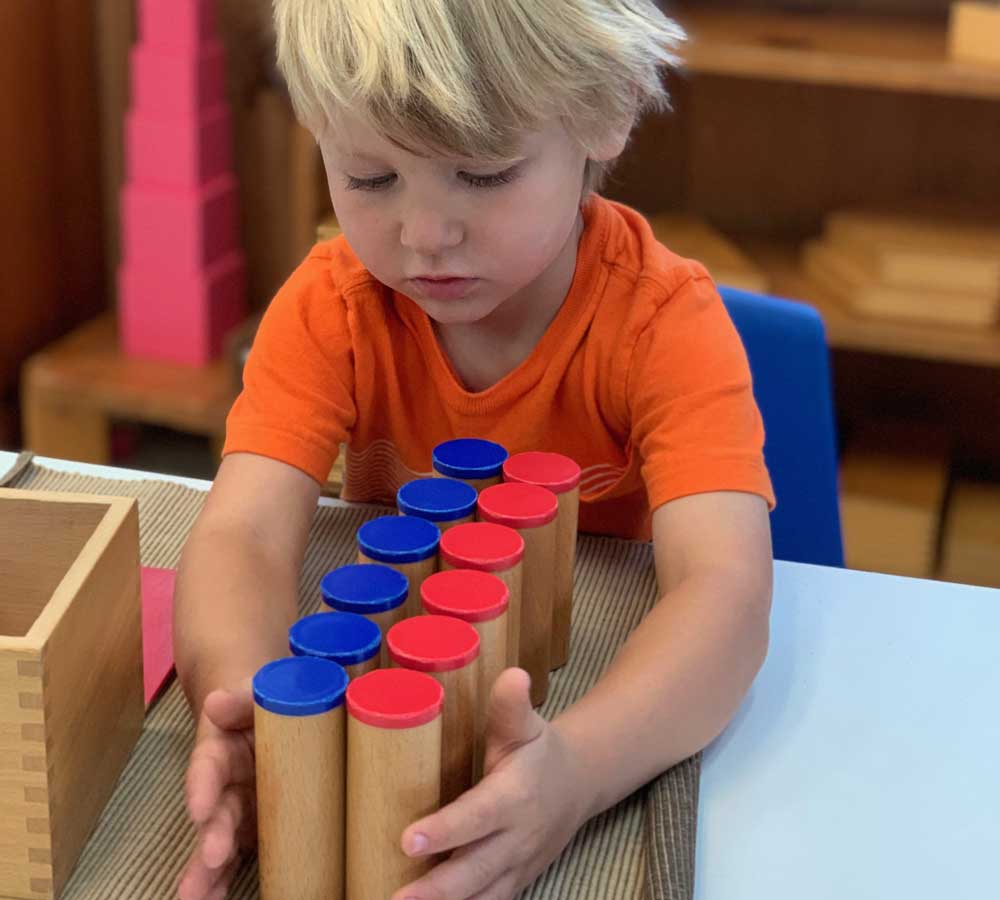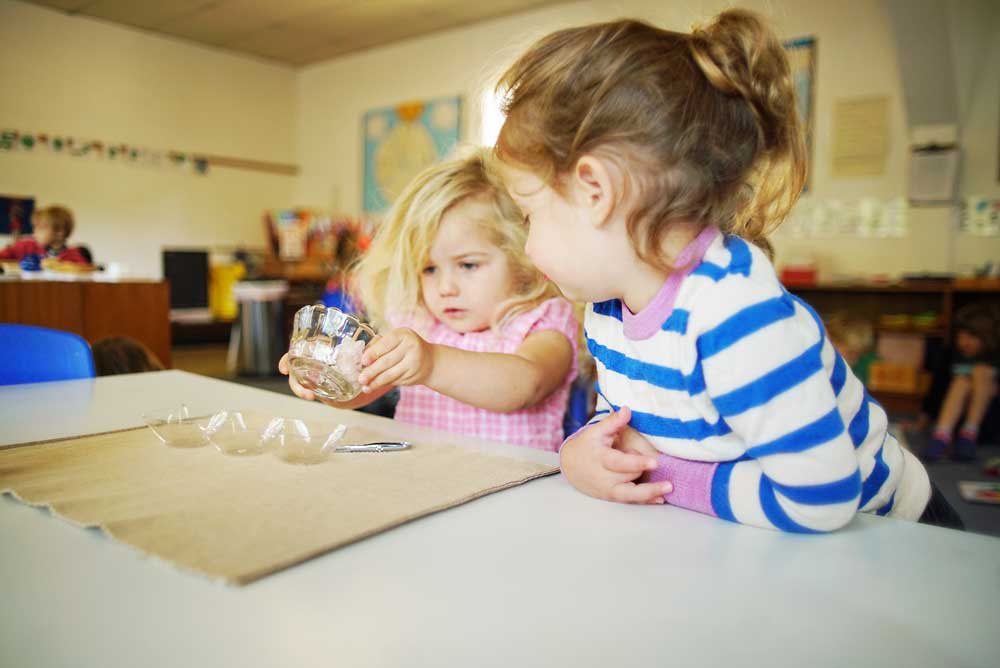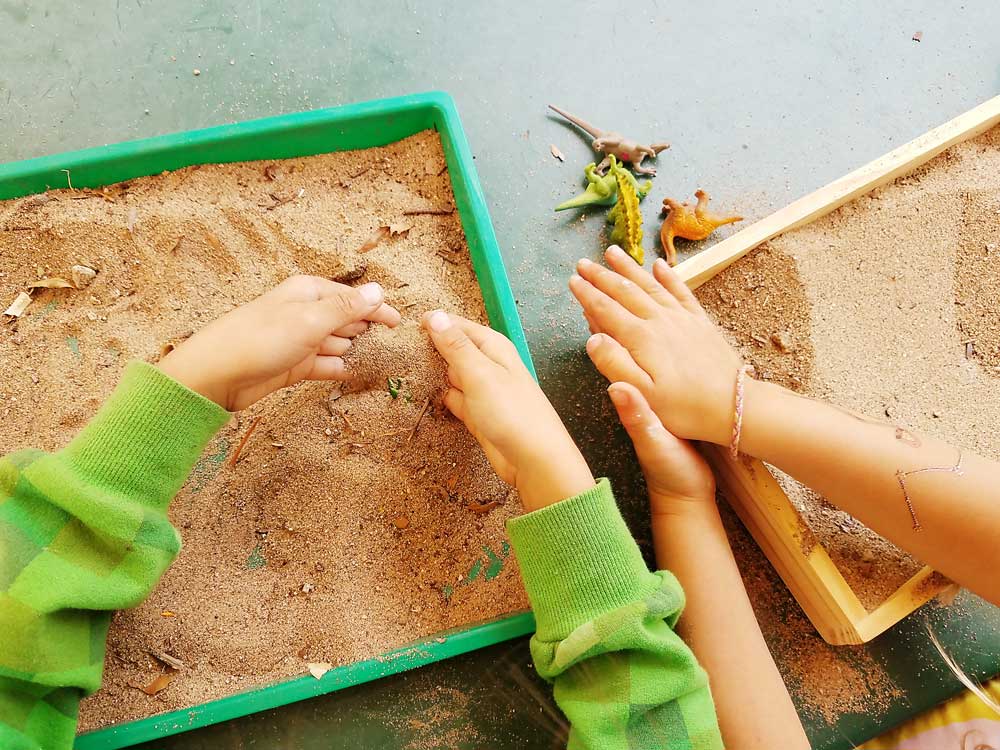
The most important period of life is not the age university studies, but the first one, the period from birth to the age of six. For that is the time when a man's intelligence itself, his greatest implement, is being formed.
—Dr. Maria Montessori
In Montessori, we use the term Primary to refer to our multi-aged preschool and kindergarten classroom. Children ages 2 ½ (fully potty-trained) to 6 begin their education at Glendale Montessori in a Primary classroom and remain in there for approximately 3 years.
Preschool
This period of time or “cycle” is specifically designed to help children develop self-confidence, concentration, coordination, problem-solving and good working habits.
What may look like play in a Primary classroom is actually very intentional and important. Children are gaining independence and developing their love of learning.
Most materials and lessons are presented individually, allowing children to gain independence and learn at their own pace.
Kindergarten
The final year of this cycle—the kindergarten year—is particularly important. This year brings all of the previous lessons together.
By this point, children have gained a mastery of concepts and are able to start applying them more broadly to understand their environment.
In addition to reading, and exploring math and geography independently, older children enhance their self-esteem and develop leadership skills by helping their younger classmates manipulate classroom materials.
Materials in the Primary classrooms are divided into three main categories:
Practical Life Materials

Practical life materials allow preschool and kindergarten-age children to develop coordination and skills for practical living. Some examples of practical life skills in include:
- Carrying water in a pitcher
- Pouring water into cups
- Practicing buttons, snaps or zippers
- Bow-tying
- Mimicking household chores though play
- Mirror polishing
- Apple cutting
- Button sewing
Sensorial
Materials

Sensorial materials help children of all ages become aware of details using their senses. Children evaluate what makes objects the same, what makes them different and how they make sense together. Some examples of sensorial skill building includes:
- Grading color tablets from lightest to darkest
- Stacking cubes from largest to smallest
- Refining visual and auditory discrimination through work with manipulative materials
- Learning pre-math concepts such as big and small, sets of 10, geometric shapes
Academic
Materials

Academic materials are available for each child’s sensitive period of learning. Materials for academic growth introduce children to subjects including:
- Reading
- Mathematics
- Geography
- Botany
- Zoology
- Astronomy
Here are some special preschool/kindergarten activities:
- Cooking
- Gardening
- Unit studies which may include geography-continent studies, dinosaurs, solar system, botany
- Career day
- Classroom visitors